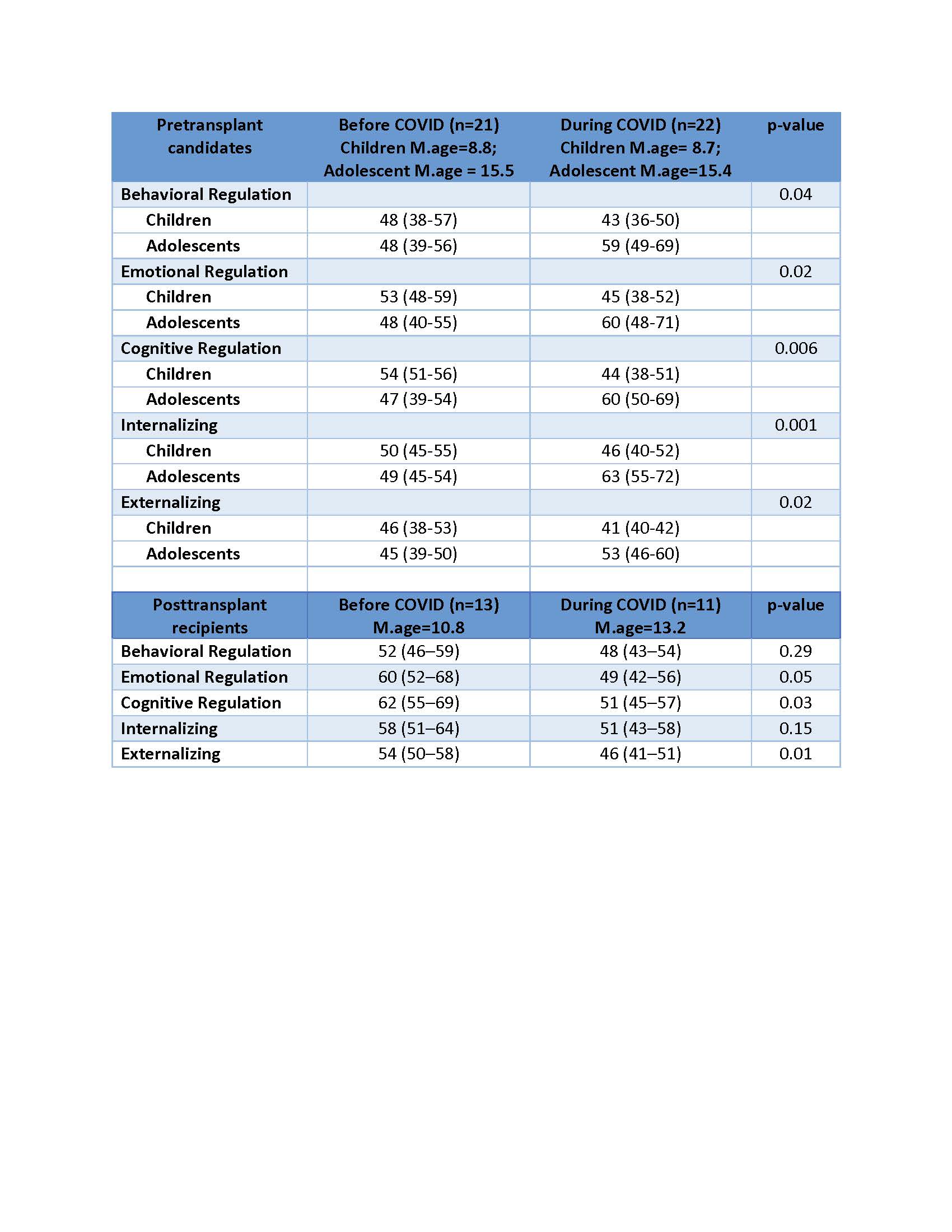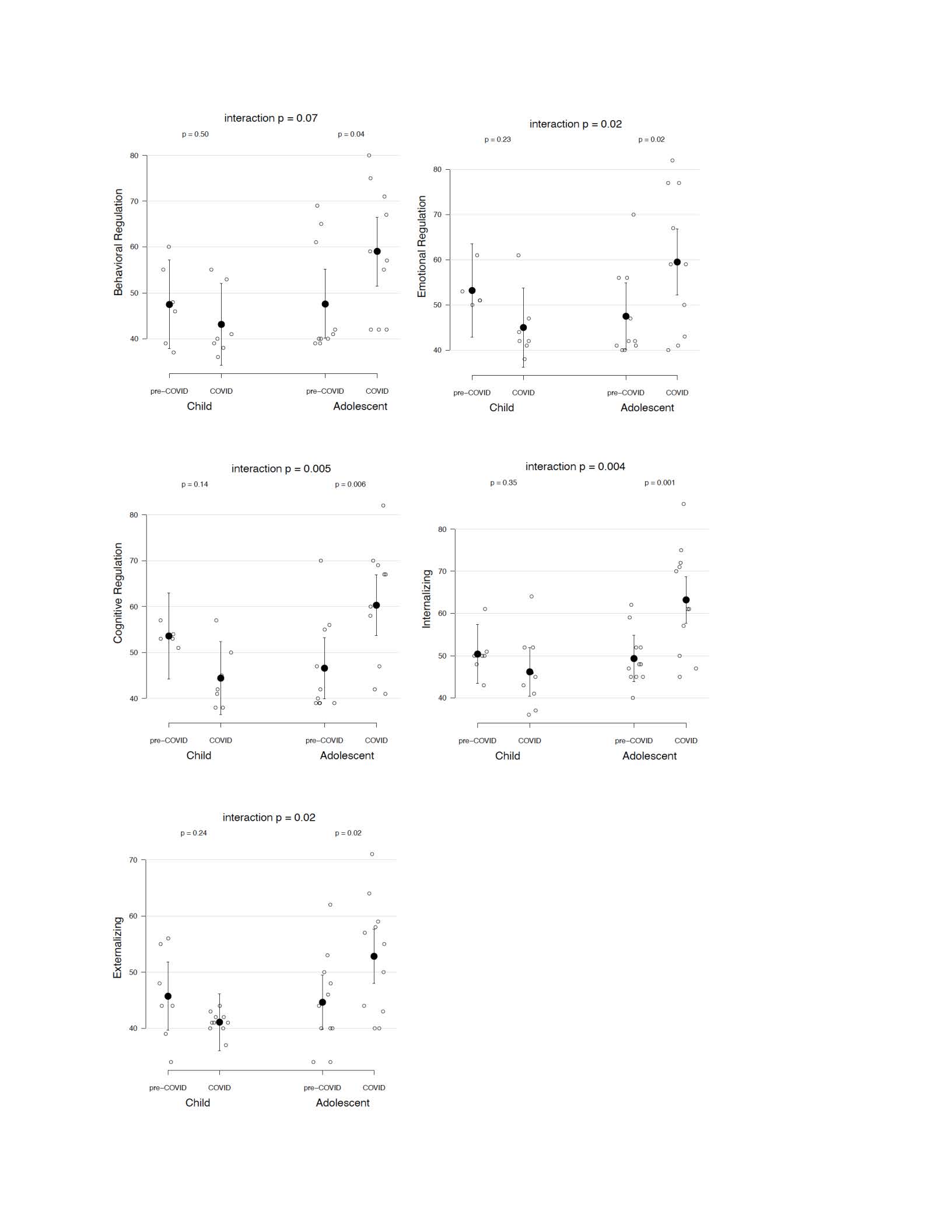Mental Health
Session: Mental Health 1
556 - Differential Impacts of COVID-19 on Mental Health and Executive Functioning in Pediatric Kidney Transplant Candidates and Recipients
Sunday, May 5, 2024
3:30 PM - 6:00 PM ET
Poster Number: 556
Publication Number: 556.1964
Publication Number: 556.1964

Lidan Gu, Psychologist (she/her/hers)
Assistant Professor
University of Minnesota Medical School
Minneapolis, Minnesota, United States
Presenting Author(s)
Background: The impact of COVID-19 (C-19) on the mental health (MH) of children and adolescents has been extensively observed and documented globally (Samji et al., 2022; Theberath et al., 2022). Recent studies also indicate a link between pediatric MH and executive functioning (EF; Wagner et al., 2015). Given their chronic/acute medical conditions and immunosuppressant status, pediatric kidney transplant recipients could be particularly vulnerable during the C-19 outbreak.
Objective: This investigation explored the impact of C-19 on MH and EF in pediatric kidney transplant candidates and recipients, hypothesizing increased concerns in these areas during the C-19 era.
Design/Methods: We retrospectively identified 43 pediatric kidney transplant candidates (65% White, 16% Indigenous/Alaskan Native, 9% Asian American, 5% Black, 5% Unknown) and 24 recipients (67% White, 16 % Indigenous/Alaskan Native, 13% Asian American, 4% Black) who completed neuropsychological evaluations either pre-C-19 (2017-2019) or during C-19 ( 2020-2022). Parent-reported measures of MH and EF were used. EF and MH were compared by age group (children vs adolescents) and time period (pre-C-19 vs during C-19) in the candidate group using linear models. Due to the smaller sample sizes of the recipient group, parent-reported measures were only compared by the time period.
Results: Within the pre-transplant candidate group, an interaction between time period and age was observed. Adolescent candidates evaluated during C-19 showed greater concerns with behavioral regulation (p=.04), emotional regulation (p=.02), cognitive regulation (p=.006), internalizing symptoms (p=.001), and externalizing symptoms (p=.02) compared to the pre-C-19 adolescent candidates. Child candidates did not exhibit significantly more concerns in these domains during C-19 (p>.1). Contrary to our hypothesis, pediatric kidney transplant recipients evaluated during C-19 had fewer concerns than the recipients evaluated pre-C-19 regarding emotional regulation (p=.05), cognitive regulation (p=.03), and externalizing problems (p=.01).
Conclusion(s): Adolescents awaiting a kidney transplant appeared to be most vulnerable to MH and EF concerns. As these adolescents transition to post-transplant care, close monitoring and additional support may be necessary to mitigate the risk of MH difficulties or nonadherence. The observed reduction in concerns among post-transplant recipients during the C-19 outbreak could be attributed to changes in environmental factors , positive internal factors, or the small sample size. Further research is needed to inform the best practice.


